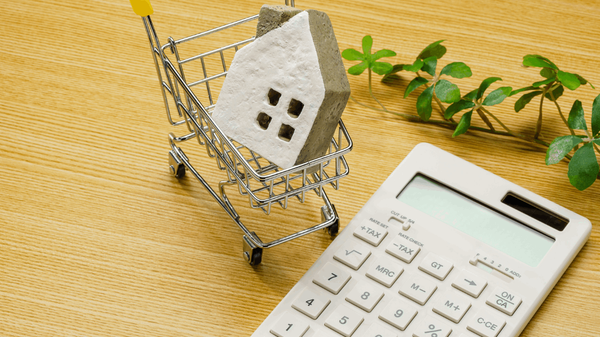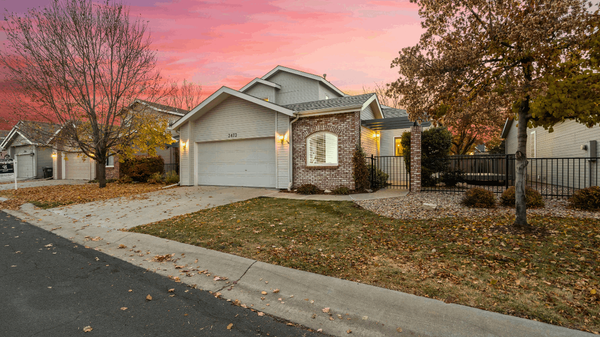Buying and Selling a Home at the Same Time: How to Navigate It Without the Chaos
Thinking of selling your home and buying a new one at the same time? You’re definitely not alone. It's a move many people make—but it can feel like a high-stakes balancing act. Between timing, finances, emotions, and logistics, things can get overwhelming fast. The good news? With the right game plan, you can make the transition feel a lot less stressful—and a lot more strategic.
Here’s a complete guide to making your buy-and-sell journey seamless and successful.
The Challenge of Juggling Two Transactions

Why It’s Tricky
This isn’t just about paperwork. You’re dealing with two moving timelines, financial variables, and emotional roller coasters—all at once. If you sell too soon, you might be scrambling for a place to live. Buy too early, and you’re carrying two mortgages. The key is planning ahead and staying flexible.
Mistakes That Can Cost You
-
Trying to line up closings without a plan B
-
Overestimating how much you’ll profit from the sale
-
Shopping before getting pre-approved for your next mortgage
Understanding the Market First
Is It a Buyer’s or Seller’s Market?
This matters a lot. In a seller’s market, your current home might fly off the shelf—but you’ll have more competition when buying. In a buyer’s market, you can take your pick of homes—but might need patience when selling.
How the Market Shapes Your Strategy
-
Hot seller’s market: Consider selling first and negotiating a rent-back agreement
-
Buyer’s market: Buying first may give you the upper hand
Financial Prep: Don’t Skip This Step

Know Your Home’s Value
Before you dream about your next kitchen island or backyard pool, find out what your current home is worth. Online estimates are just that—estimates. Ask a real estate agent to run a Comparative Market Analysis (CMA) for a reality check.
Get Pre-Approved for Your New Mortgage
Don’t assume you’ll qualify automatically. A pre-approval letter shows you’re serious—and lets you shop with confidence and clarity.
Timing Tactics: Choosing the Right Sequence
Selling First
This is the safer financial move for most people.
Pros:
-
You know exactly what funds you’re working with
-
Avoid carrying two mortgages
Cons:
-
May require short-term housing
-
Can add pressure to find your next place fast
Buying First
This works well if you’re financially stable and don’t want to risk being between homes.
Pros:
-
Smooth transition—no temporary housing needed
-
Flexibility to move on your terms
Cons:
-
Might juggle two mortgages
-
Pressure to sell quickly
Simultaneous Closing
In a perfect world, both homes close on the same day. It’s not easy, but a great agent can help make it happen.
Bridge Loans and Other Funding Solutions

What’s a Bridge Loan?
A short-term loan that covers the gap between buying and selling. It’s helpful, but not cheap—rates and fees can add up.
Other Options
-
HELOC: Tap into your existing equity
-
401(k) Loan: Borrow from retirement savings (with caution)
-
Family Assistance: Borrowing from relatives may come with more flexible terms
Talk to a mortgage advisor to find the best path for your situation.
Why the Right Agent Changes Everything
You Need a Pro Who Can Do Both
A seasoned real estate agent who’s handled buy-sell combos can help you avoid missteps. They’ll align both timelines, negotiate contingency clauses, and keep your stress levels low.
Contingencies: The Backup Plans You Need

Sale Contingency
This says: “I’ll buy your home only if mine sells first.” It protects your finances but can make your offer less competitive.
Purchase Contingency
This ensures your current home sale goes through only if you close on a new home. It’s a good fallback in tight buying markets.
Logistics: The Not-So-Glamorous Details
Temporary Housing Options
If you sell first and your next home isn’t ready, here are some options:
-
Airbnb or short-term rentals
-
Extended-stay hotels
-
Staying with friends or family
Coordinating Movers
Pick a moving company with flexible rescheduling—delays happen all the time in real estate. Build in some breathing room.
Tax Tips and Legal Things to Know

Capital Gains and Tax Planning
You might owe capital gains taxes if your home’s value jumped significantly—unless you meet IRS exemptions. Other factors to watch:
-
Prorated property taxes
-
Transfer fees
-
Legal closing costs
A quick meeting with a tax advisor can save you major headaches later.
Managing the Emotional Side
Don’t Let Stress Run the Show
Back-to-back closings can get intense. You might be tempted to accept a weak offer or rush into buying something that doesn’t really fit. Pause. Reflect. Make decisions based on facts—not pressure.
Final Thoughts: You’ve Got This
Buying and selling a home simultaneously can feel like solving a 3D puzzle blindfolded. But with planning, a solid team, and a flexible mindset, you can absolutely pull it off. Know your numbers. Understand the market. And above all, don’t panic—plenty of people have done this before, and you can too.
FAQs
1. What’s the biggest challenge when buying and selling at the same time?
Timing. If one transaction closes too soon, you could end up with two mortgages—or none.
2. Is it better to sell first or buy first?
Selling first is usually safer, especially if you need the proceeds to buy. But if you’re financially comfortable, buying first can reduce stress.
3. What if I can’t find a home after selling mine?
Temporary rentals or a rent-back agreement with your buyer can buy you time.
4. Are bridge loans worth it?
They’re helpful in the right scenario, but come with higher rates and fees. Explore all options before deciding.
5. Can one agent handle both buying and selling?
Yes—and it’s often ideal. A single agent can better coordinate timelines and negotiation strategies for both sides of the deal.
Categories
Recent Posts











7997 W. Sahara Ave. Suite 101, Vegas, NV, 89117, United States
